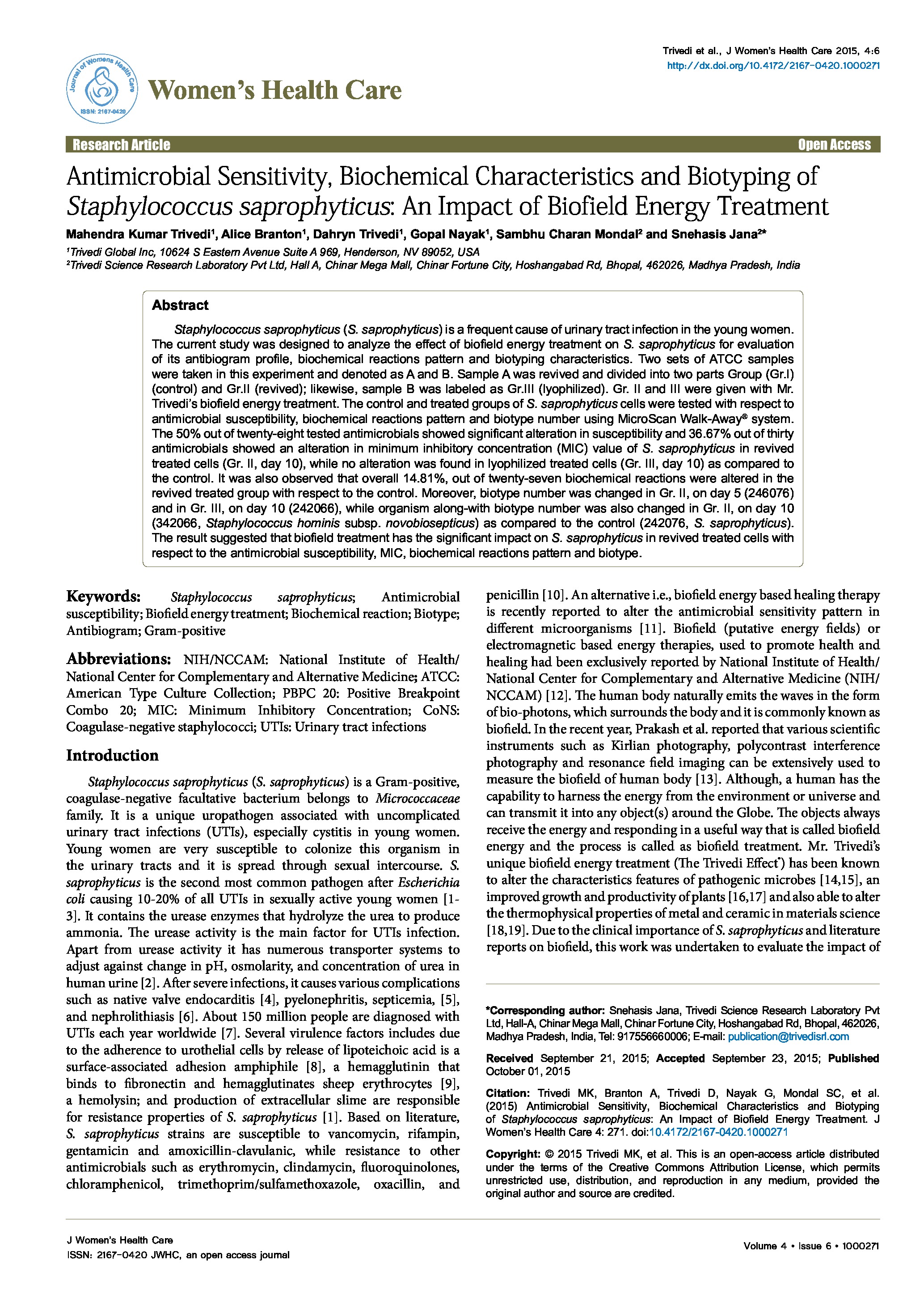Antimicrobial Sensitivity, Biochemical Characteristics and Biotyping of Staphylococcus saprophyticus: An Impact of Biofield Energy Treatment
Affiliation
Trivedi Global Inc.; Trivedi Science Research Laboratory Pvt. Ltd.
Main category
Natural Sciences (Biology)
Abstract
Staphylococcus saprophyticus (S. saprophyticus) is a frequent cause of urinary tract infection in the young women. The current study was designed to analyze the effect of biofield energy treatment on S. saprophyticus for evaluation of its antibiogram profile, biochemical reactions pattern and biotyping characteristics. Two sets of ATCC samples were taken in this experiment and denoted as A and B. Sample A was revived and divided into two parts Group (Gr.I) (control) and Gr.II (revived); likewise, sample B was labeled as Gr.III (lyophilized). Gr. II and III were given with Mr. Trivedi’s biofield energy treatment. The control and treated groups of S. saprophyticus cells were tested with respect to antimicrobial susceptibility, biochemical reactions pattern and biotype number using MicroScan Walk-Away® system. The 50% out of twenty-eight tested antimicrobials showed significant alteration in susceptibility and 36.67% out of thirty antimicrobials showed an alteration in minimum inhibitory concentration (MIC) value of S. saprophyticus in revived treated cells (Gr. II, day 10), while no alteration was found in lyophilized treated cells (Gr. III, day 10) as compared to the control. It was also observed that overall 14.81%, out of twenty-seven biochemical reactions were altered in the revived treated group with respect to the control. Moreover, biotype number was changed in Gr. II, on day 5 (246076) and in Gr. III, on day 10 (242066), while organism along-with biotype number was also changed in Gr. II, on day 10 (342066, Staphylococcus hominis subsp. novobiosepticus) as compared to the control (242076, S. saprophyticus). The result suggested that biofield treatment has the significant impact on S. saprophyticus in revived treated cells with respect to the antimicrobial susceptibility, MIC, biochemical reactions pattern and biotype.
DOI
10.18147/smn.2016/paper:353
Do you have problems viewing the pdf-file? Download paper
here
If the paper contains inappropriate content, please
report the paper. You will be redirected to the landing page.
